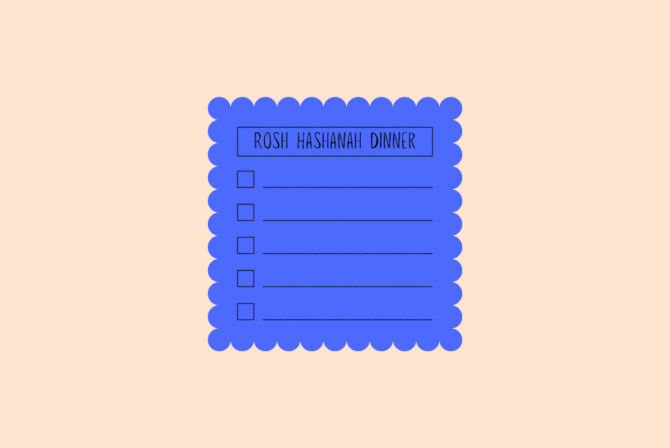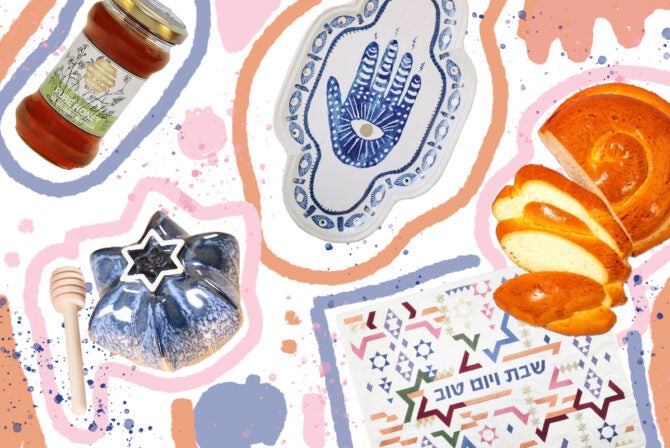I was 7 years old the first time my mother told me that the fate of occupied Europe was in my hands. I remember it clearly. My mother sat me down and explained to me that if, when I grew up, I failed to marry a Jewish girl and raise Jewish children, it would mean that Hitler won. I, in turn, explained to my mother that Hitler had already lost the war, and also that girls were gross and that I had no intention of getting married to anyone ever.
I suppose some people might consider that sort of conversation odd, but my mother grew up in Belgium during World War II and had lost both her parents in the camps. My sister and I were told and told often that we had special responsibilities as the children of a survivor. To my mother that responsibility was clear. It was my job to have Jewish children. For many years, when I was growing up, my mother would quote the words of Martin Niemoller: “First they came for the Socialists, and I did not speak out—because I was not a Socialist. Then they came for the Trade Unionists, and I did not speak out—because I was not a Trade Unionist. Then they came for the Jews, and I did not speak out—because I was not a Jew. Then they came for me—and there was no one left to speak for me.”
The words were meant to tell me that I must always help those who needed my help, but in truth, for my mother, they were always at heart an acknowledgement that it was the Jews who’d have to look out for the Jews, since no one else ever would.
Many years later, I met and married the nice Jewish girl of my mother’s dreams. We had two children, and my mother lost all interest in me forever and began to focus on her grandchildren. All was as it was meant to be, in her eyes, until one day, my wife and I told my parents that we were planning on adopting a child. From Ethiopia. Who would most certainly not be Jewish.
My mother worried. No big surprise there. I defy you to find me a newspaper anywhere in the world that would run the headline: “Breaking News: Jewish Mother Worries!” Mostly, she worried about the two children I already had: my son, Clay, and my daughter, Grace. Clay was then 5 and not all that comfortable with change. He didn’t like getting new sneakers or having to eat something new for breakfast and so, my mother worried, not unreasonably, about how he’d handle having a new little brother.
I shared some of her worries, of course. But I also had been listening to all that she’d been telling me over the years. During the war, my mother had been placed in a Catholic orphanage by her parents to be hidden there by nuns. Those nuns were hardly enlightened when it came to childrearing; if a girl wet her bed they tied her soiled sheets around her neck and made her wear them for the day. But they risked their own lives to save my mother and other girls like her.
You cannot blame someone who lived through that nightmare for how they interpret what happened to them, but for me, the words of Niemoller and the actions of those nuns tell a different story than the one I was told as a child. I learned that I am responsible, not just for Jews or my Jewish children, but for whoever needs my help, even though it was certainly not my mother’s intention to teach quite that lesson. There was a boy in Ethiopia who, like so many in Africa at that time, had lost loved ones to the plague of AIDS. Because of my mother’s determination that I marry a Jewish girl, that boy is now my son. Life is strange that way.
So, how did it work out in the end?
My son and daughter adjusted very nicely to having a new younger brother. And my mother? Well, my son Nati was very excited to meet his new grandparents after he’d been home with me a few weeks. And so, we arranged for them to fly out to meet their newest grandchild. It’s a strange thing to suddenly have a 5-year-old son or grandson, but I knew that my mother had come around to the idea that very first day they met.
They were sitting on the couch, looking at picture books. Nati was smiling ear to ear, thrilled with his new grandparents. After a time, I walked into the kitchen. I came back into the room just in time to hear my mother say to her new grandson, “That’s right, Nati. And one day, just like your father, you’ll marry a nice Jewish girl.”
Nati smiled some more and nodded his head, even though at that point, he didn’t speak more than a few words of English and had no idea what my mother was telling him. But that was fine. Like me when I’d been his age, he understood on a deeper level what she was saying. Family is what matters most, and in the end, we are all family, whether we know it or not.
Pre-order Claude’s new memoir, More Love, Less Panic: 7 Lessons I Learned About Life, Love, and Parenting After We Adopted Our Son from Ethiopia (Tarcher, 2015).
Like this post? Get the best of Kveller delivered straight to your inbox.







